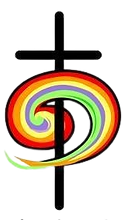Ministers Monday Moment - Jesus' breakfast
- Rev. Peter Benzie
- Apr 6, 2020
- 3 min read
As I sat eating breakfast this morning

I found myself thinking - what did Jesus eat for breakfast? And specifically what did he eat for breakfast the day after his triumphal entry into Jerusalem on "Palm Sunday?" Did he have sausages and bacon? No - well not the bacon anyway because Jews aren't allowed to eat bacon, or ham or anything that comes from a pig (check it out in Leviticus). Did he have muesli, or cereal or something else? I could look it up I suppose but I decided I'd let you do that - perhaps something that our children and youth could look up and let us know?
Then I thought I wonder what time Jesus had breakfast. It was probably earlier than me this morning! Maybe around 7am as he would probably have got up when the sun came up, started his day in prayer - probably off by himself and then had breakfast with his disciples and other followers in Bethany.
I wonder if he planned his day like I did this morning? I wonder if he knew what would happen that day - after all he is the son of God, God knows what's going to happen, so did he? Did he know that he would overturn the tables of the money changers (Matt. 21:12–13; Mark 11:15–17), curse the fig tree (Matt. 21:18–22; cf. Mark 11:12–14), perform those particular miracles (Matt. 21:14–16; Mark 1:18)?
When we take time to pause and walk with Jesus through Holy Week we find ourselves (or maybe its just me) asking ourselves such questions. Musing and pondering, thinking an wondering, pausing to allow God to speak to us and draw us closer to him, just as Jesus drew closer to him as he walked toward the cross.
As promised this morning we put up Day 2 of our devotionals on Facebook (and here's the
link for those who don't have Facebook) to help us draw closer to God in Holy Week. Suitable for young and old it is provides us with the opportunity to pause and walk with Jesus through Holy Week. To pause individually and as a family to ask ourselves the questions at the end of the clip, to use them to start us thinking "What was Jesus doing at this time?", stopping to read our Bible (or hear it if you are using an audio version like I often do), asking "What does that mean for me?", pausing to hear from God as we stop and listen and pray.
To help you go deeper each day below is a timeline of the events of Easter Week as told in the Word of God - The Holy Bible.
Finally - I invite you to share your insights and what you wonder, learn etc. either as a comment to the blog here or in our private Facebook page.
May God enrich and bless you as you walk with his Son, our Lord and Saviour through Holy Week.
Peter
Walking with Jesus through Holy (Passion) Week
A Harmony of the Events of Jesus’ Final Week
(cf. Matt. 21–28; Mark 11–16; Luke 19–24; John 12–21)
Modern Calendar Days
· Arrival in Bethany (John 12:1)
Saturday
· Evening celebration, Mary anoints Jesus (John 12:2–8; cf. Matt. 26:6–13)
Sunday
· Triumphal Entry into Jerusalem (Matt. 21:1–11; Mark 11:1–10; John 12:12–18)
· Jesus surveys the temple area (Mark 11:11)
· Return to Bethany (Matt. 21:17; Mark 11:11)
Monday
· Cursing the fig tree on the way to Jerusalem (Matt. 21:18–22; cf. Mark 11:12–14)
· Clearing the temple (Matt. 21:12–13; Mark 11:15–17)
· Miracles and challenges in the temple (Matt. 21:14–16; Mark 1:18)
· Return to Bethany (Mark 11:19)
Tuesday
· Reaction to cursing the fig tree on the way back to Jerusalem (Matt. 21:20–22; Mark 11:20–21)
· Debates with religious leaders in Jerusalem and teaching in the temple (Matt. 21:23–23:39; Mark 11:27–12:44)
· Eschatological (End Times) Discourse on the Mount of Olives on the return to Bethany (Matt. 24:1–25:46; Mark 13:1–37)
Wednesday
· “Silent Wednesday”—Jesus and disciples remain in Bethany for last time of fellowship
· Judas returns alone to Jerusalem to make arrangements for the betrayal (Matt. 26:14–16; Mark 14:10–11)
Thursday
· Preparations for Passover (Matt. 26:17–19; Mark 14:12–16)
After sundown:
· Passover meal and Last Supper (Matt. 26:20–35; Mark 14:17–26)
· Upper Room discourses (John 13–17)
· Prayers in the Garden of Gethsemane (Matt. 26:36–46; Mark 14:32–42)
Friday
Sometime perhaps after midnight:
· Betrayal and arrest (Matt. 26:47–56; Mark 14:43–52)
· Jewish trial—Jesus appears in three phases in front of:
• Annas (John 18:13–24)
• Caiaphas and partial Sanhedrin (Matt. 26:57–75; Mark 14:53–65)
• Sanhedrin fully assembled (perhaps after sunrise) (Matt. 27:1–2; Mark 15:1)
· Roman trial—Jesus appears in three phases before:
• Pilate (Matt. 27:2–14; Mark 15:2–5)
• Herod Antipas (Luke 23:6–12)
• Pilate (Matt. 27:15–26; Mark 15:6–15)
· Crucifixion (approx. 9:00 a.m. to 3:00 p.m.) (Matt. 27:27–66; Mark 15:16–39)
· Burial (from approx. 3:00pm) (Matt 27:57-66; Mark 15:42-47; Luke 23:50-56; 19:38-42)
Saturday
· Dead and in the tomb
Sunday
· Resurrection witnesses (Matt. 28:1–8; Mark 16:1–8; Luke 24:1–12)
· Resurrection appearances (Matt. 28:9–20; Luke 24:13–53; John 20–21)



Comments